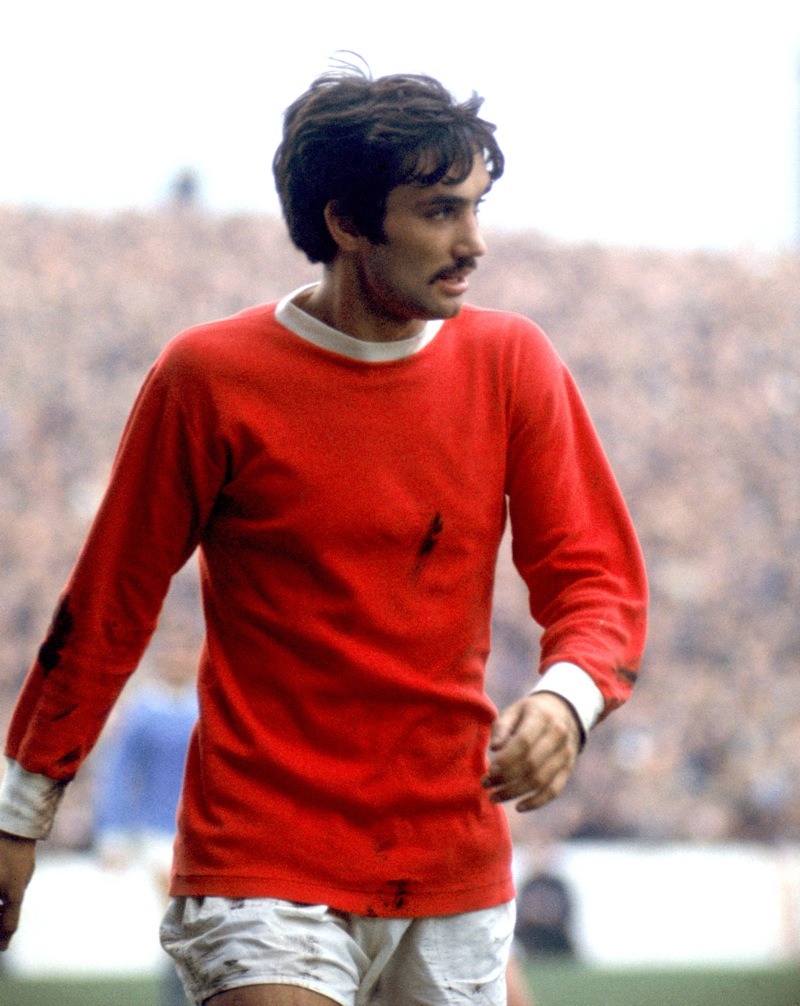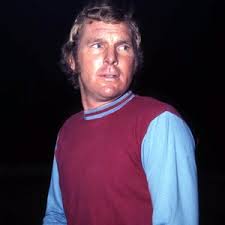Legendary Football Players - Danny Blanchflower
082. George Best
For many people, Northern Irish star George Best is the most naturally talented player in the history of football. His sometimes wayward lifestyle and the fact that he played his international football for a relative minnow meant that his full potential was never really realised, but he still holds a place as one of the true legends of the game.
Best is most renowned as a member of the great Manchester United team of the 1960s. He first came into the team in 1963, aged just 17, and made his international debut in the spring of 1964 against Wales. One year later, he was a part of Manchester United's 1964-65 English League Championship winning team. In the autumn of 1965 Best came as close as he ever would to reaching the finals of a major international championship, when Northern Ireland failed to reach the 1966 World Cup in England by a single point after only drawing their last qualifying match in Albania.
Best would reach the peak of his playing career in the late 1960s, winning a second league title with Manchester United in 1967, and the European Champions' Cup a year later, where he scored in the final against Benfica. 1968 saw him named as both English and European footballer of the Year. One of his more famous matches came in 1970, when he scored six goals in an F.A. Cup tie against Northampton Town, but his lifestyle was starting to affect his game and his relationship with the club.
Best left Manchester United in 1974 and spent the next decade playing for a great number of different clubs, including Stockport County and Fulham in England, and Hibernian in Scotland. For several years he played during the summer in the North American Soccer League and returned to Britain for the winter, but he never played more than 61 matches for any club other than Manchester United.
After retiring from football in 1983, Best fought a long battle against alcoholism which led to him undergoing a liver transplant in 2002. For many years, it was his private life rather than any further career in football that kept him in the headlines. He eventually managed to find a new career in television, working as a studio expert on British television, but his health continued to suffer and he died in November 2005, aged 59. Best's funeral in Belfast was one of the biggest ever seen for a former footballer, with tens of thousands lining the streets to pay tribute to Northern Ireland's greatest player.
Legendary Football Players: George Best


Search My Football Facts & Stats
Web site designed & hosted by Paul Yarden © 2013 at Homestead™